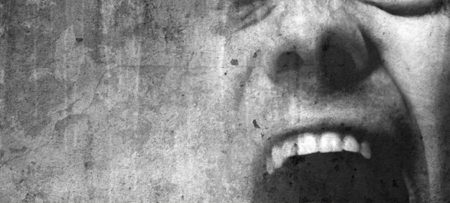8 results for tag: Beginning Meditation
Learning To Meditate
Learning to meditate is hard. This is my experience with learning to meditate. I was coming up on six months clean and sober. My sponsor's sponsor, which I jokingly used to call my grand sponsor, was coming up on 40 years sober. I used to enjoy talking with old Bill often. He was kind, respectful, direct, and openhearted. These were all qualities that I had desired, but I did not know how to express them myself or know many people who did, for that matter. So I used to like to talk with him whenever possible. He was one of the few people I trusted even a little.
One night after a meeting, Bill came over and sat next to me. He smiled that soft, gentle smile that typically made me feel safe, if only momentary. On that particular Friday night, I was not able to tap into his smile in order to shift the sadness, desperation, and frustration I was experiencing. Bill noticed this immediately. He leaned over and put his right hand on my left elbow, "How are you doing, young man?". Bill was old enough to forget pretty much everyone's name, and we were all either Young Man or Young Woman, regardless of age or any other identifying factors.
I let out a deep sigh and felt my belly clinch, "I'm not doing so good, Bill. I go to meetings, I talk to my sponsor, I hang out with all my recovering friends, I pray every night before I go to bed, and every morning when I wake up, I still feel miserable. I feel like it's never going to get better for me, and there's nothing I can do about it."
 ...
...
 ...
... How Breathing Calms Your Brain
It's about time that science has caught up to what many of us have known for a very long time. Breathing calms your brain, heart, whole body, and mind. Scientists are doing amazing research on how breathing affects the vagus nerve. "The vagal nerve, as a proponent of the parasympathetic nervous system (PNS), is the prime candidate in explaining the effects of contemplative practices on health, mental health, and cognition"(Roderik J. S. Gerritsen and Guido P. H. Band). I trust research conducted by the National Institutes of Health (NIH).
My primary interest in posting this article is that simply focused breathing can shift our brain rhythm, heart rate, and sense of well-being in general, just a few simple breaths. I encourage many clients to pause and take three full breaths several times a day: when we get out of bed, before work/school/childcare, after work/school/childcare, and before bed. We can stop at any time in any place and take three full breaths to regulate our brain rhythm and heart rate so we can function normally. Breathing calms your brain.
I invite you to try it right now. Below is a basic technique suggested by the University of Michigan Medicine. If the situation does not support the specifics of this method, just take three full breaths to your below and release fully after each breath. Breathing calms your brain.
 ...
...
"Belly breathing
Belly breathing is easy to do and very relaxing. Try this basic exercise anytime you need to relax or relieve stress.
-
Sit or lie flat in a comfortable position.
-
Put one hand on your belly just below your ribs and the other hand on your chest.
-
Take a deep breath in through your nose, and let your belly push your hand out. Your chest should not move.
-
Breathe out through pursed lips as if you were whistling. Feel the hand on your belly go in, and use it to push all the air out.
-
Do this breathing 3 to 10 times. Take your time with each breath.
-
Notice how you feel at the end of the exercise."
 ...
... Meditation Training in Rhode Island!
I am very excited to offer Meditation Training in Rhode Island! This three-part series will be excellent for beginners and those who already have a meditation practice. We will cover the basics of meditation and various styles and methods. We will have real-life experiences with each style, plus time to practice. This meditation training series is constructed so that you will have two weeks between each session to practice.
"Meditation practice isn’t about trying to throw ourselves away and become something better, it’s about befriending who we are." – Ani Pema Chodron ...
Children Talk About Mindfulness in “Just Breathe” Short Film – Mindful.org
Children talk about mindfulness in “Just Breathe” short film. For many of us, when we think about mindfulness and image of a middle-aged white male with an intense expression on his face or a twenty something year old young white female with perfect skin and body come to mind. But what about ...
Obsessions and Compulsions: Zen Buddhism Help or Hurt?
Obsessions and compulsions, we all have them. Does Buddhism help or hurt those trying to learn how to live life without being controlled by their obsessions and compulsions? Zen Buddhism can be a very orderly and defined practice. Zen Buddhism is often regimented, or at least many practitioners and teachers practice that way. Our discussion today is whether Zen Buddhism supports recovery of obsessions and compulsions or the actual obsessions and compulsions themselves. Obsession and compulsions Zen Buddhism have a unique relationship, so let's explore it together.
 ...
...
 ...
... Why Learn How To Do Nothing?
Do Nothing. Just writing those two words feels freeing. I am so grateful that I have learned how to do nothing successfully for almost twenty-five years. I am not a bum or lazy; much to the contrary. I just do nothing at least once a day to support effectiveness and attention. I do nothing to stay present or become present again after a distraction or lack of focus seep in. I do nothing because it is important, maybe necessary, to be the person I aspire to be....
The Invisible White Rabbit – A Parable in Determination
The Invisible White Rabbit - A Parable in Determination is based on a story by Edward Hays. I think The Invisible White Rabbit is an excellent source of inspiration and wisdom for those trying to forge a spiritual journey. We all know this journey takes incredible determination and perseverance. Many New Age books make it sound easy with their claims of "Five Easy Steps Towards Enlightenment", but anyone who has done any deep spiritual work is acutely aware that it is not easy or fast. But how do we stay on the path with life's challenges and surprises?...






